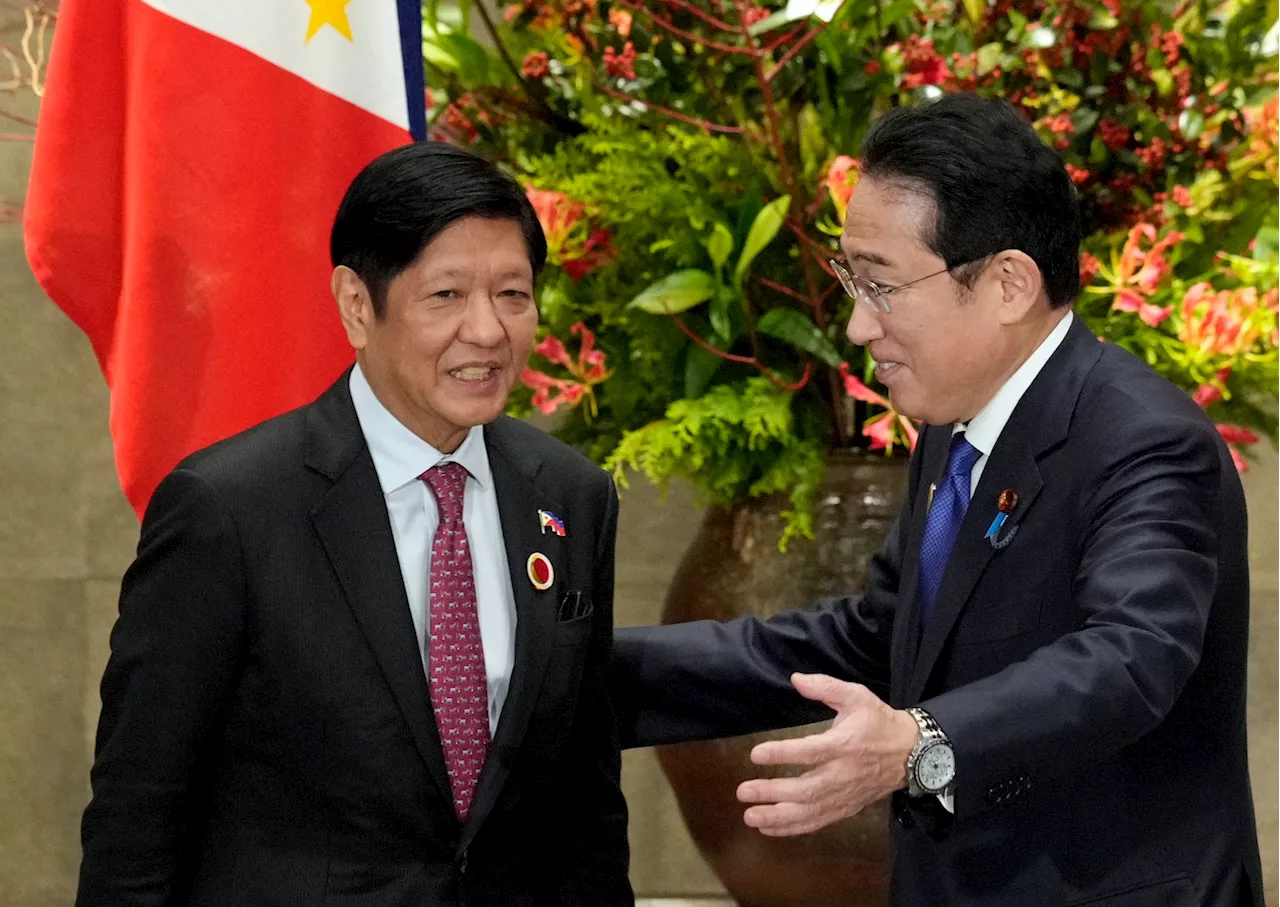Ironically, the growing alliance between Japan, the Philippines and the United States owes a lot to Chinese President Xi Jinping.
Israel and Ukraine might be sucking up all the foreign policy oxygen, but this week in Washington, one of the most significant international developments is something else entirely. The leaders of two important Asian allies will meet with the U.S. president, together, for the first time — highlighting a new three-way alliance. And the man who deserves the most credit for making this happen is, ironically, Chinese President Xi Jinping.
When President Biden meets with Japanese Prime Minister Fumio Kishida and Philippine President Ferdinand “Bongbong” Marcos Jr. at the White House Wednesday, these leaders will present this new trilateral alliance as focused on common interests and principles such as freedom of navigation and rule of law, rather than as directed at any one country. But the subtext is clear: as China’s appetite for power and territory grows, Indo-Pacific allies are teaming up and asking for U.S. help.
For the Biden team, this summit is the culmination of years of work building new alliance groups in Asia. They have already held meetings with the leaders of the Quad , AUKUS , and Japan and South Korea last year at. This latest arrangement is sometimes internally called JAROPUS , an acronym coined by U.S. ambassador to Japan Rahm Emanuel that has not yet completely caught on.“The Indo-Pacific comes down to two strategic visions,” Emanuel told me in an interview.
“My message to Xi Jinping is, ‘Don’t change,’” Emanuel said, a bit facetiously. “Keep it up at home and in the neighborhood. He deserves recognition for all his assistance.”of global shipping traverses each year. For years, Beijing has been harassing and threatening ships near disputed islands and geographical features it claims as its own. Lately, China’s tactics are increasingly dangerous.
In my conversations with officials from both countries, their first question is always: What will Donald Trump do if he gets reelected? Nobody really knows, but based on Trump’s actions during his last term, Asian allies have reason for concern. Trump pulled the United States out of the Trans-Pacific Partnership. He threatened to withdraw U.S. troops from Japan and South Korea if they didn’t pay more to host them.
United States Latest News, United States Headlines
Similar News:You can also read news stories similar to this one that we have collected from other news sources.
 Asia-Pacific markets rise ahead of central bank meetings this week; China data on tapThe U.S. Federal Reserve will start its March FOMC meeting on Tuesday, while the BOJ and RBA will also be holding monetary policy meetings this week.
Asia-Pacific markets rise ahead of central bank meetings this week; China data on tapThe U.S. Federal Reserve will start its March FOMC meeting on Tuesday, while the BOJ and RBA will also be holding monetary policy meetings this week.
Read more »
 Indo-Pacific Command Asks For Staggering $11 Billion More Than Biden Budget Request Amid China ThreatU.S. Indo-Pacific Command (INDOPACOM), which oversees U.S. military operations in the Indo-Pacific region, requested an additional $11 billion for ...
Indo-Pacific Command Asks For Staggering $11 Billion More Than Biden Budget Request Amid China ThreatU.S. Indo-Pacific Command (INDOPACOM), which oversees U.S. military operations in the Indo-Pacific region, requested an additional $11 billion for ...
Read more »
 US tests hypersonic missile in Pacific as it aims to keep up with China and RussiaThe US Air Force has tested a hypersonic cruise missile in the Pacific for the first time, in what analysts say is a signal to China that Washington still competes in a weapons arena where many perceive Beijing to have a distinct advantage.
US tests hypersonic missile in Pacific as it aims to keep up with China and RussiaThe US Air Force has tested a hypersonic cruise missile in the Pacific for the first time, in what analysts say is a signal to China that Washington still competes in a weapons arena where many perceive Beijing to have a distinct advantage.
Read more »
 Japan and China stocks rise, while most Asia-Pacific markets are closedJapan, South Korea and China are open on Friday, while most markets in the Asia-Pacific region stay shut for a public holiday.
Japan and China stocks rise, while most Asia-Pacific markets are closedJapan, South Korea and China are open on Friday, while most markets in the Asia-Pacific region stay shut for a public holiday.
Read more »
 Pacific coalition tightens as China pressures the Philippines and TaiwanU.S. allies in the Pacific Ocean are working together with us in preparation for war as China expands its aggression toward other nations.
Pacific coalition tightens as China pressures the Philippines and TaiwanU.S. allies in the Pacific Ocean are working together with us in preparation for war as China expands its aggression toward other nations.
Read more »
 US Indo-Pacific Commander 'very, very concerned' about Chinese aggression in South China SeaThe head of the U.S. Indo-Pacific Command says he is “very, very concerned” about China’s aggression toward Philippine forces near disputed islands in the South China Sea.
US Indo-Pacific Commander 'very, very concerned' about Chinese aggression in South China SeaThe head of the U.S. Indo-Pacific Command says he is “very, very concerned” about China’s aggression toward Philippine forces near disputed islands in the South China Sea.
Read more »
